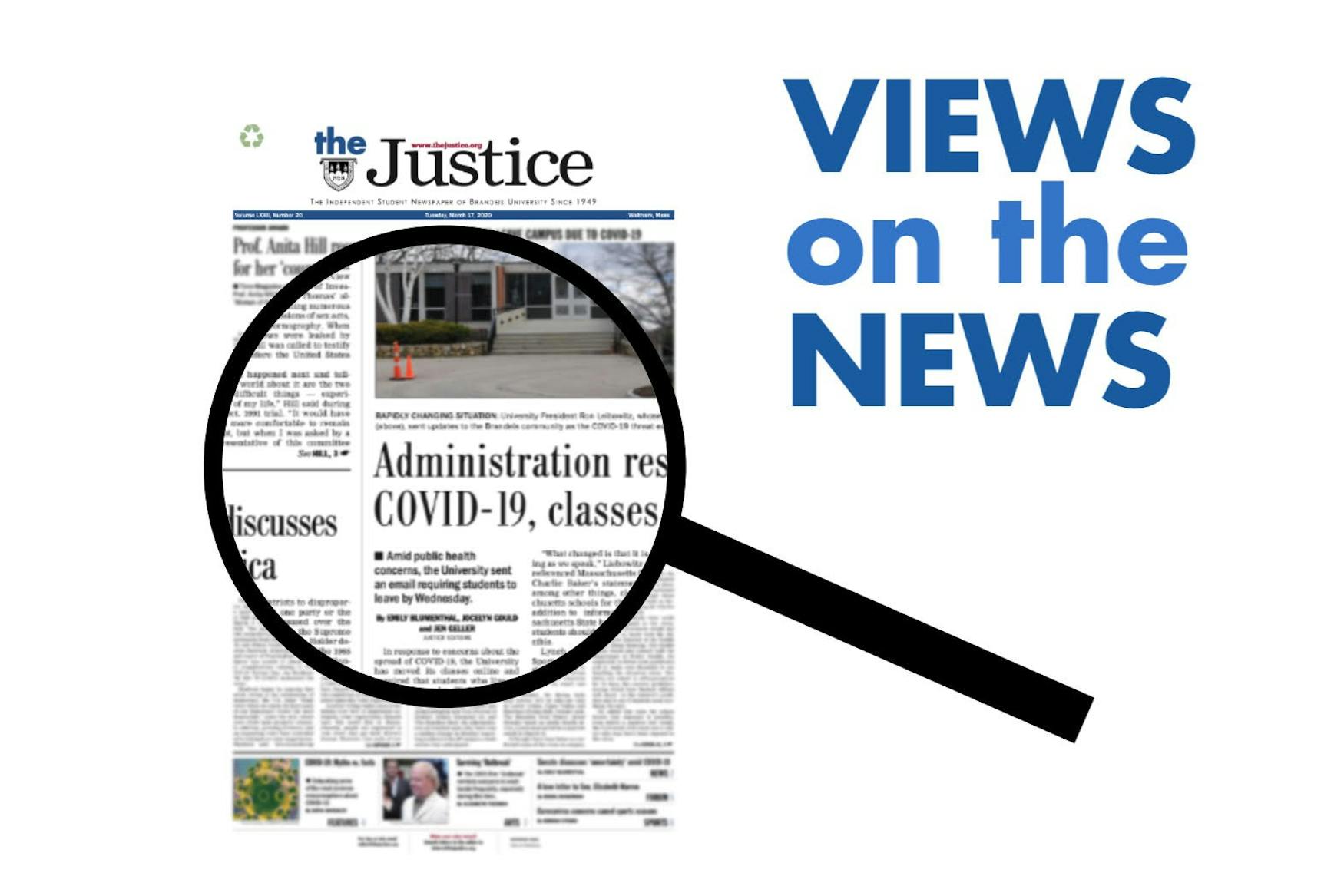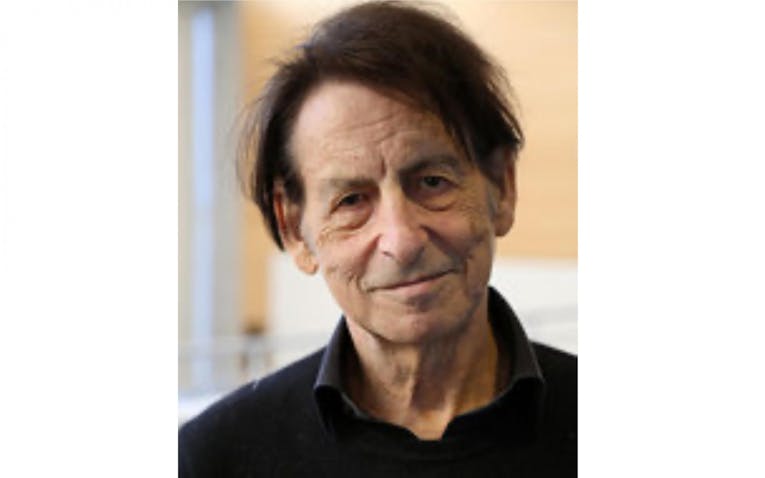Views on the news: Amy Coney Barrett’s confirmation hearing

On Saturday Nov. 7, former Vice President Joseph R. Biden, Jr. was elected the 46th president of the United States. After a tumultuous election season, Biden beat lame-duck President Donald J. Trump with 306 electoral votes to Trump’s 232 electoral votes. Biden’s win is largely attributed to support in swing states such as Wisconsin, Michigan and Pennsylvania. Biden’s win also marks a historical moment for California Sen. Kamala Harris, who is the first Black and South Asian woman to be elected vice president of the United States. What was your reaction to the Biden-Harris win? What do you think should be the top priorities for the new administration? Also, what do you anticipate as the biggest resistance to the new administration?

Prof. Daniel Breen (LGLS):
Regardless of Judge Barrett’s evasions during her recent confirmation hearings, the fact is that we know everything that we need to know about her and her likely approach to major Constitutional questions. She is a devoted originalist, like her mentor the late Justice Antonin Scalia, which means that in her view, the words in the text of the Constitution must be understood in terms of the meaning they had in 1787. This is an impoverished theory, for it casts aside the importance of over 200 years of struggle and blood and sacrifice, in which “we the people” have sought to determine for ourselves what words like “liberty” and “due process” and “equal protection” ought to mean. To confine (for example) the meaning of “liberty” to the meaning it had at a time when women were not permitted to practice law or vote or even sign contracts on their own if they were married is to lose sight of this lived experience, this unfolding understanding of human freedom. It is bad history and bad law, but unfortunately, it will serve very well as a rationale for a vote to overturn progressive precedents like Roe v. Wade.
Daniel Breen is a senior lecturer in legal studies.

Prof. Andreas Teuber (PHIL):
Asked during her confirmation hearings about her judicial philosophy, a theory of interpretation she claims to share with her former mentor, Justice Antonin Scalia, and for whom she clerked in 1998-99, Amy Coney Barrett replied succinctly:
"That means I interpret the Constitution as a law. The text is text and I understand it to have the meaning that it had at the time people ratified it. It does not change over time, and it is not up to me to update it or infuse my own views into it."
But the Framers who met in Philadelphia in 1787 made room for amendments which suggests an openness to change, thereby contradicting Barrett's view that “does not change over time."
As Ronald Dworkin, one of our better legal theorists, liked to point out, if the Framers were interested in conveying what they meant, they would not have used such general terms, but found wording that was more specific. If they had truly wanted us to be guided by what they had in mind by freedom of speech, cruel and unusual or right and wrong, they would have done more than name the concepts.
Ben Franklin, who did not write a word of the text, saw the task as one of reaching agreement and the best way to reach agreement was to be silent on certain matters. In creating a national federal republic, the Framers do not mention "national," "federal" or "republic." The first pseudonym Franklin adopted was “Silence Dogood.” It might serve as an epitaph for the Constitution itself, which is marked as much by what the Framers left out as by what they put in, leaving many an originalist hard-pressed to come up with answers to their questions.
To make matters more difficult, the Framers imposed a “gag rule” on themselves during that summer and prohibited participants from publishing their notes afterward. And if this were not enough to preclude originalism from viability, many of the Framers had a theory of interpretation that runs counter to originalism which only came into vogue in the 1980s.
Madison, for one, saw himself as well as others at the Philadelphia Convention as "merely drafters," arguing in Federalist No. 37 that "all new laws … are considered as more or less obscure and equivocal, until their meaning be … ascertained by a series of particular discussions and adjudications." So the Constitution awaits its meaning.
For Madison, its meaning is found in a continuous process of interpretation and not in some meaning injected into it at its inception, as Barrett would have it.
The Constitution does not just mean. It goes on meaning and meaning.
The Constitution’s lack of specificity on any number of constitutional matters will enable Barrett as an originalist — just as it enabled her mentor, Scalia — to slip her conservative views surreptitiously under its cover.
Andreas Teuber is an associate professor of philosophy.

Vandita Malviya Wilson MBA
If I were there being interrogated — I mean questioned — I’d be evasive too. I’m at least glad she is female and GenX, so she is old but not Boomer old. For sure we have different views on legal fashion. I am told not to care about clothing choices, but I see, listen and read. Optics matter.
The purpose of her evasions are that she’s smart and doesn’t want to be pigeon-holed as all nominees for the Supreme Court are. The “political theater” aspect of each and every one of these nominations has become tiring. There is so much grandstanding and politicians trying to appeal to their bases in order to get re-elected. It’s more of a campaign event than anything. Anybody who has watched over the years has seen the partisanship play out over and over, and she’s aware of how this goes. She will be painted one way by the Senate minority side as they will go out of their way to find fault with her, whether or not it is justified. What we’ve also seen over several decades is that sometimes justices (such as Souter) surprise everybody who views that they will always rule in particular ways, then they don’t because they interpret their role as a justice in a particular way. That’s part of what makes the current reactions to her nomination entertaining to watch: nobody really knows how things will work out. It’s possible that all the fears of the Democrats will be completely unfounded once the specter of political infighting is removed. Or perhaps next year another justice or two becomes incapacitated or dies and (potentially) a different president is nominating new candidates, with the so-called “balance” shifting yet again.
Using terms like originalism and textualism is completely fair in a world that has determined that absolutely everything must be categorized and labeled. The world has decided that everybody must be defined by ideology or party affiliation, even though the reality can be more nuanced. What it doesn’t take into account is that judges are constantly forced into making rulings based not on their opinions, but on procedural or legal aspects. It is only the bad judges who let their opinions get the better of them, and we see that constantly, which is part of why the system exists as it does. Guilty people go free every day because of technicalities, and there’s nothing to say that aspects of cases that find their way to the Supreme Court might also have flaws baked in from lower court decisions. I remain skeptical that these high profile cases, some of which have been around for decades, will be overturned given the will of a seeming majority of people. There are a lot of days when it seems like the ACA should be overturned in favor of something that actually works better, because that too is highly flawed.
Vandita Malviya Wilson is a MPP Candidate, Class of 2022 at the Heller School for Social Policy and Management.



Please note All comments are eligible for publication in The Justice.